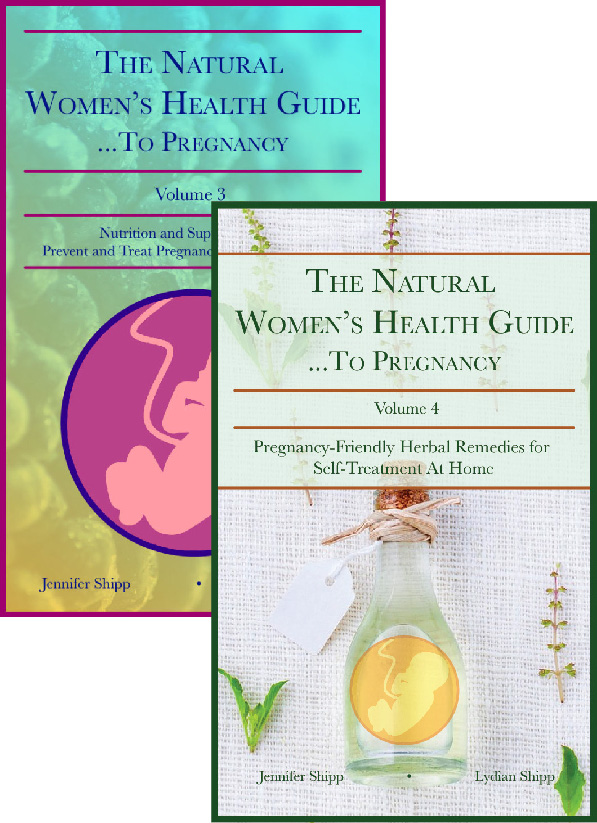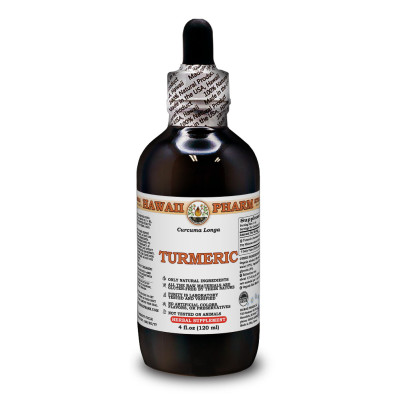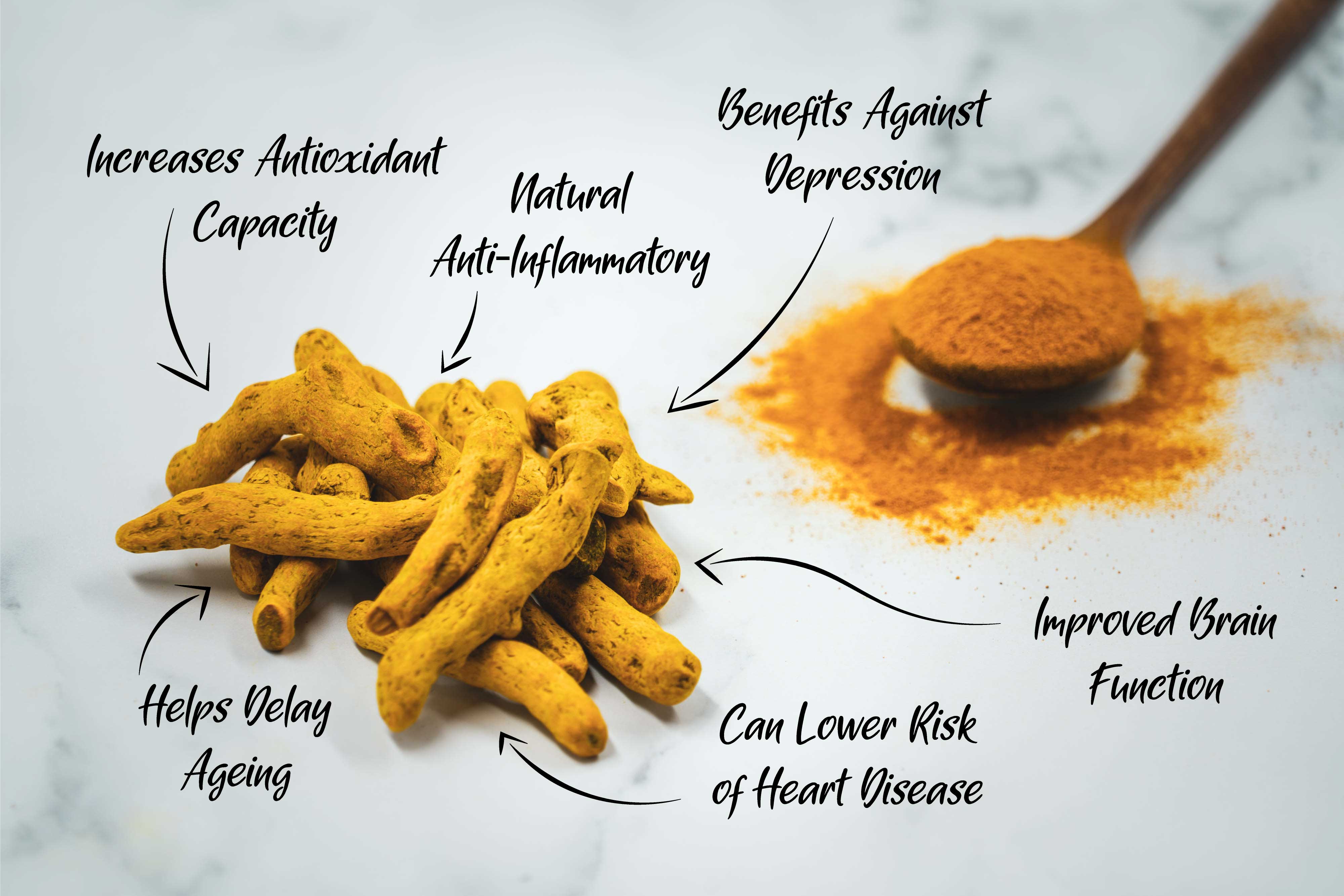Is Turmeric Safe During Pregnancy?
It is seriously weird to see how many articles there are out there discouraging the use of turmeric during pregnancy. Though there haven’t been a lot of studies on the use of turmeric during pregnancy in humans, there have been quite a large number of animal studies, all of them positive in regard to safe treatment during pregnancy beyond the first trimester. In fact, studies have shown that past the implantation phase, turmeric is generally a useful herb during pregnancy. Turmeric is eaten in large quantities in many cultures and this herb has quite a reputation for healing, especially when it’s properly prepared with some kind of fat or oil plus black pepper to increase its bioavailability. So, I regard it as somewhat of a tragedy that there are so many high-ranking articles out there that proclaim that turmeric is unsafe during pregnancy.A Google search for “turmeric safety during pregnancy” provides me with an outline of what I regard as propaganda — a series of articles that have been “spun” from an original, misleading source of information that was funded by Big Pharma. This doesn’t surprise me in regard to turmeric since intravenous turmeric has been used to cure cancer. If pregnant women were to use this herb with success at a young age to treat themselves at home for serious conditions like gestational diabetes, preeclampsia, kidney infection, or intrauterine growth restriction, word would get out about turmeric. People would see the value of this herbal remedy as a treatment for pain, inflammation and some of the most serious diseases that plague mankind (cancer and diabetes). My own experiences with turmeric have been extremely positive. It’s a shame that women are unsure about the safety of turmeric during pregnancy.
On the basis of my own research, I just gave Lydian (33 weeks pregnant), about 1800 mg of organic turmeric root that contains 150 mg of curcuminoids (including curcumin) and BioPerine / Piper nigrum (otherwise known as black pepper). This morning, she woke up with blood and protein in her urine, probably due to a kidney infection. Kidney infections and kidney-related issues are common during pregnancy and often, these issues are exacerbated by free radicals and inflammation. So, after a jar-full of cranberry juice and a large dose of D-Mannose (among other things), I gave her this dose of turmeric upon which she fell into a deep and restful sleep. The turmeric helped her sleep through the entire night and in the morning, her urine looked better, she felt better, and she didn’t have to suffer with inflammation or pain.
Turmeric / Curcuma longa contains a famous polyphenol known as curcumin (which is also known as diferuloylmethane). This herb has been used extensively as a medicinal agent for centuries throughout the world during pregnancy as well as throughout the lifespan. This herb is pleiotropic which means that it has multiple, diverse medicinal effects on the body as well as the ability to target multiple health issues at the same time. In many ways, turmeric fills a vacuum in terms of treatment for pregnancy-related disorders. Below we discuss how and when you can use turmeric during pregnancy safely as well as disorders that can be treated using this herb.

"The Natural Women's Health Guide... to Pregnancy - BUY HERE!"
Is Turmeric Safe During Pregnancy? Is Curcumin Safe During Pregnancy?
Curcuma longa has been used safely during pregnancy but IT SHOULD BE AVOIDED DURING THE FIRST TRIMESTER. Several studies have shown that turmeric and curcumin in higher-than-food doses could reduce the implantation rate and development of an embryo during the blastocyst stage. While Curcuma longa and curcumin have been shown to have positive effects on fetal development in the second and third trimesters, during the first trimester, this herb could be toxic to the embryo, especially in moderate to high doses.Note that the toxicity of turmeric during pregnancy is most pronounced during and immediately after the implantation phase. In other words, it may be possible and desirable to administer turmeric during the first trimester of pregnancy after the implantation phase, trophoblast, and blastocyst development of the embryo.
The medicinal effects of turmeric have been attributed to curcuminoids. There are three of them that have been studied extensively:
- Demethoxycurcumin
- Bisdemethoxycurcumin
- Curcumin
Curcumin
Curcumin is a curcuminoid that’s found in turmeric. However, there are products that are sold as simply curcumin and these products don’t contain the other two curcuminoids listed above. These products also don’t contain any of the other whole plant materials found in turmeric. So the medicinal action of curcumin is different than the medicinal action of the whole plant “turmeric”.Of these three curcuminoids, curcumin is the most potent antioxidant and anti-inflammatory agent that confers a variety of biological effects. This particular curcuminoid interacts with a number of different cellular and molecular targets to regulate gene expression and to modulate epigenetic changes such as DNA methylation, microRNA expression, or histone modification. Curcumin modulates gut microbiome dysbiosis to influence the gut-brain-microflora axis, thus promoting brain health.
Curcumin has been used to treat the following types of diseases and disorders:
- Cardiovascular disease
- Diabetes
- Neurodegenerative disease
- Arthritis
- Cancer
Curcumin doses in non-pregnant adults are generally between 6-12 grams per day. During pregnancy, dosing is a bit lower and patients should seek out a whole-herb product that contains turmeric with a standardized amount of curcumin.
It’s important to note that curcumin is not exceptionally bioavailable because it is rapidly metabolized and the small amount of it that is absorbed by the body is extensively transformed into water-soluble metabolites, glucuronides, and sulfates. A number of strategies have been used to improve bioavailability of curcumin. Administering curcumin with piperine / black pepper can be helpful, but even more important is the consumption of fats or oils along with curcumin doses. In Ayurvedic medicine, for example, turmeric is administered along with ghee. Golden milk recipes (see below) are also popular as a way to administer turmeric in a more bioavailable form.
Curcumin as a Natural Treatment for Gestational Diabetes
Curcumin has anti-hyperglycemic activity. In other words, this natural substance in turmeric is able to lower blood sugar levels. It improves glucose uptake in human cells, improves insulin sensitivity, lower lipid levels, and enhances pancreatic beta-cell function. At the same time, curcumin improves liver and kidney function to reduce oxidative stress and inflammation.
Curcumin has been studied in terms of its effects on gestational diabetes mellitus in animal models of the disease. Studies have shown that curcumin reduced symptoms of gestational diabetes as well as complications that can result from this disease. At a dose of 100 mg per kilogram of the patient’s body weight per day curcumin was able to significantly reduce blood glucose and insulin levels. This dose improved oxidative stress, increased hepatic glycogen content, increased glutathione levels, catalase, and superoxide dismutase levels in pregnant mice. The offspring of mice that were given curcumin, were healthier with higher birth weight with a lower risk of neural tube defects.
For a woman who weighs 150 pounds (68 kilograms), the proper curcumin dose would be 6800 mg per day (ideally in 3-4 divided doses). We recommend, however, that women use a whole-herb product that contains turmeric rather than just curcumin.
Curcumin: Natural Prevention for Preeclampsia
During pregnancy, the body must adapt and make big changes in terms of circulation and blood flow. During a healthy pregnancy, blood vessels dilate in part due to high levels of estrogen and progesterone. Heart rate and cardiac output rise while the body produces more blood increasing the volume of blood in the body.One of the most serious pregnancy-related complications that can occur after 20 weeks gestation is preeclampsia and eclampsia. Preeclampsia is a systemic problem that is characterized by high blood pressure and protein in the urine. Doctors, midwives, or patients can easily determine whether a patient has preeclampsia by checking the patient’s knee reflex. If the knee reflex is there and it is normal, the patient does not have preeclampsia. If the reflex is absent the patient has preeclampsia.
The danger with preeclampsia is that the pregnant women goes into a vasoconstrictive state of inflammation and oxidative stress. The blood vessel tissues begin to malfunction which, in turn, causes severe adverse effects on the placenta. Reducing or reversing the pathological processes involved in preeclampsia are aimed at reducing inflammation, preventing clot formation, and keeping blood vessels dilated but toned. Curcumin has been successfully used in animals to reduce high blood pressure, control protein in the urine, and reduce kidney damage. Additionally, curcumin administration reduces serum levels of IL-6 (a cytokine) and monocyte chemoattractant protein-1 (MCP-1).
In animals with preeclampsia, curcumin treatment prevented inadequate trophoblast invasions and spiral artery remodeling, which can occur in the placenta in women with preeclampsia. Inflammatory molecules are reduced and various signaling pathways that are involved in preeclampsia development are modulated with supplementation with curcumin.
One human study examined the use of curcumin in 47 pregnant women with preeclampsia to determine whether this substance would impact the expression of COX-1 and IL-10, two inflammatory molecules that seem to be intimately involved in the development of preeclampsia. In the study, the women were given only 100 mg of curcumin per day. There was no reported change in the levels of these inflammatory molecules, probably because the dose was too small. Nonetheless, the curcumin supplement also caused no harm.
Curcumin: Herbal Remedy for Postpartum Depression
Postpartum depression is a common problem that afflicts approximately 10-20% of women, although some scientists acknowledge that the prevalence may be much higher at around 50%. Postpartum depression is an under-reported, under-studied problem. Symptoms often begin during pregnancy with up to 30% of women reporting symptoms even before they give birth.Depression and inflammation have been tightly correlated in scientific studies. In other words, inflammatory processes in the body, even low-level inflammation, can cause symptoms of depression. Some studies have linked low-level brain inflammation to depression which has led to a variety of studies into the use of curcumin as an herbal remedy for postpartum depression.
Curcumin has been used as an herbal remedy for Alzheimer’s disease, Parkinson’s disease, migraine headaches, multiple sclerosis, epilepsy, spinal cord and brain injury, and depression, all diseases and disorders involving inflammation of the brain or nervous system tissues. Studies have shown that in non-pregnant individuals with Major Depressive Disorder, 8 week curcumin supplementation with 500 mg twice daily reduced both depression and anxiety. The effectiveness of curcumin is comparable to fluoxetine, a prescription antidepressant drug.
Some researchers have speculated that the antidepressant activity of curcumin is due to the tendency of this substance to restore balance in the hypothalamic-pituitary-adrenal axis. Curcumin can balance the release of monoamine neurotransmitters such as serotonin, noradrenaline, glutamate, and dopamine while simultaneously balancing the expression of monoamine oxidase. This substance also promotes neurogenesis and the release of brain-derived neurotrophic factor.
Curcumin: Effect on Fetal Health and Development
Turmeric as an Herbal Remedy for Placental Insufficiency
Placental insufficiency and fetal growth restriction affect between 3-7% of newborn babies. Some scientists have speculated that oxidative stress and inflammation play a major role in this disease. Curcumin is a valuable natural anti-inflammatory herb that has been studied as a potential natural treatment for placental insufficiency and fetal growth restriction. These studies have demonstrated that indeed, curcumin supplementation can enhance placental efficiency, avoid tissue damage and increase weight gains by the fetus.Turmeric as an Herbal Remedy for Intrauterine Growth Restriction
Scientists have identified a number of factors that impact fetal growth. Some of the most important factors include:- Inflammation
- Various inflammatory molecules have been correlated with the development of intrauterine growth restriction.
- Placental inflammation and systemic inflammation in the fetus have been observed in fetal growth restriction.
- A lack of anti-inflammatory cytokines contributes to the problem of inflammation in intrauterine growth restriction.
- Abnormalities in Nitric Oxide Production
- Nitric Oxide is a molecule that’s produced by the blood vessels to promote blood vessel relaxation as well as an inhibition of platelet activation and platelet aggregation. Nitric oxide also decreases gene expression for inflammation and it inhibits vascular smooth muscle cell proliferation.
- Nitric Oxide production in the placenta controls the blood supply to the fetus via control over blood vessel dilation.
- Studies have demonstrated that there is an association between inhibition of Nitric Oxide synthesis and both preeclampsia as well as intrauterine growth restriction.
- Oxidative Stress
- An increase in the production of free radicals has been correlated with intrauterine growth restriction.
- Pregnancy itself has been described as an “oxidative stress condition”.
- Angiogenesis or the creation of new blood vessels
- Vascular Endothelial Factor (VEGF) - a substance that spurs angiogenesis during pregnancy. The VEGF level in pregnancy increases until the 30th week of gestation. After that time, VEGF levels decrease until delivery.
Liver health is improved significantly through curcumin supplementation perhaps in part as a result of antioxidants. Insulin resistance and liver fat accumulation in newborn rats was reduced substantially at a dose of 400 mg per kilogram of the animal’s body weight (at six weeks gestation for six weeks of treatment). Cholesterol and triglyceride levels were also reduced in the liver.
In other studies, small intestine damage was alleviated using curcumin in growing pigs at a dose of 200 mg per kilogram of body weight. At this dose, curcumin was able to significantly reduce inflammation, thereby reducing damage to this organ during pregnancy.
Turmeric for Detoxification During Pregnancy
Turmeric and curcumin have the ability to remove certain environmental toxins from the body to restore health to various tissues and organs, including most notably, the brain and the liver. Below are toxins that can be removed from the body using turmeric / curcumin:-
Bisphenol-A (also known as BPA)
- This is a chemical used in the production of plastics. It is an endocrine disruptor with estrogenic activity. BPA exposure during pregnancy can cause childhood obesity, brain development in the fetus, as well as fetal growth restriction.
- Curcumin / turmeric treatment has been shown to reverse the toxic effects of BPA exposure and improve learning and memory in BPA-exposed animals at a dose of 200 mg per kilogram of weight per day.
-
Mercury Exposure
- Mercury is a heavy metal that is present in both the environment as well as in dentistry (as amalgam fillings) and in sea food. Women who have been exposed to mining either through work or through a family member’s work may have been exposed to high levels of mercury.
- In Saudi Arabia, studies have shown that mercury exposure impacts infant brain development. However, curcumin may mitigate the effects of mercury exposure in some cases.
- Curcumin administration has been shown to reduce anxiety both in the mother and infant by increasing dopamine, 5-HTP, and acetylcholinesterase levels perhaps because of its ability to remove toxic agents such as mercury safely.
-
Lead
- Lead is another heavy metal that is dangerous for both animals and humans. Exposure to lead typically occurs through food, water, or air pollution. This heavy metal can cross the placental barrier as well as the blood-brain barrier to cause neurotoxicity in both mother and child.
- Studies have shown that turmeric / curcumin has neuroprotective effects that can mitigate the effects of lead exposure. Essentially curcumin administration was able to prevent nervous system damage to the fetus caused by lead exposure.
-
Celecoxib
- Celecoxib is a drug that inhibits COX-2 to reduce inflammation in the body. This drug, however, also reduces adult brain cell proliferation and differentiation.
- Studies have examined the neuroprotective effects of curcumin on fetal brain development in pregnant animals that were treated with celecoxib. Curcumnin counteracted the celecoxib-induced brain cell death in the fetal frontal lobe.
-
Valproic Acid
- Valproic acid is a branched, short-chain fatty acid that is used in the treatment of seizures and epilepsy. This drug has been associated with congenital malformations including abnormalities in fetal brain development, intellectual disabilities, and autism spectrum disorders in offspring.
- Studies have shown that curcumin can diminish damage caused by Valproic Acid exposure.
-
Alcohol
- Exposure to alcohol during the prenatal period can have negative effects on fetal growth and normal development. Fetal Alcohol Disorders typically involve neurodevelopmental problems, behavioral deficits, and an increased risk of mental health problems. Birth defects including problems related to growth or even physical abnormalities are not uncommon.
- Studies have shown that administration of curcumin at adolescence to individuals who were exposed to alcohol in the womb or through lactation, can improve anxiety and memory parameters and reduce brain inflammation. Additionally, treatment with curcumin can also mitigate the effects of alcohol on heart development.
Turmeric Medicinal Effects
The substance curcumin, which is abundantly available in the plant known as turmeric, has the following medicinal actions on the body:
- Anti-inflammatory
- Antioxidant
- Antitoxicant / Detoxifying
- Immunomodulatory
- Neuroprotective
- Hepatoprotective / Protects the Liver
- Antiangiogenic
- Antihypertensive / Lowers High Blood Pressure
- Antidiabetic
The whole plant, Curcuma longa possesses the following medicinal effects:
- Cholagogue / Gallbladder tonic
- Choleretic / Promotes the flow of bile
- Hepatoprotective / Protects the liver
- Anti-inflammatory
- Antioxidant
- Astringent
- Stimulant
- Tonic
- Anti-allergic
- Antimicrobial
- Stomachic / Tones the stomach–increases appetite
- Lowers cholesterol
- Inhibits platelet aggregation / Reduces risk of blood clots
- Immunostimulant
- Supports adrenals
Turmeric Dosing During Pregnancy
Turmeric should be administered with fats or oils to improve bioavailability. Note that this herbal remedy may not function properly if you don’t administer it with a fat or an oil. Combining turmeric with black pepper (Piperine nigrum) also enhances its bioavailability.The daily dose for turmeric (the whole herb) during pregnancy is 2-9 grams (2000-9000 mg) per day. Divide the dose and administer it 3-4 times throughout the day. Consider heating the herb like a decoction in milk. Use unsweetened almond milk or raw milk derived from grass-fed cows:
Golden Milk
Ingredients:1 cup milk (organic, grass-fed, raw milk, unsweetened nut milk or oat milk) 1 teaspoon real, organic vanilla 1 teaspoon ground turmeric 1/ teaspoon ground black pepper ½ teaspoon ginger 1 tablespoon honey Stevia to taste 1 tablespoon coconut butter, cashew butter, or almond butter
Add all ingredients to a saucepan. Use a milk frother or whisk to combine all of the ingredients and mix thoroughly. Heat for 4 minutes until the mixture is hot but not boiling. Whisk continuously. Turn off the heat. Enjoy!
Turmeric Tea or Tincture
Turmeric can also be served as a simple tea. Administer 2-9 grams of turmeric powder by boiling water and then pouring it over the herb. Allow it to steep for 10 minutes before serving.Administer 1.5 to 10 mL per day of turmeric tincture.
Again, please note however, that the medicinal effects of turmeric will be quite muted if you administer it without simultaneously administering a fat or oil plus black pepper to enhance bioavailability.

 Click here to subscribe to the Living Database!
Click here to subscribe to the Living Database!
Resources:

 Turmeric safety in pregnancy has been established through numerous animal studies and a few studies in humans.
Turmeric safety in pregnancy has been established through numerous animal studies and a few studies in humans. Turmeric Curcumin with Black Pepper Extract 1500mg - High Absorption Ultra Potent Turmeric Supplement with 95% Curcuminoids and BioPerine - Non GMO Turmeric Capsules for Joint Support - 90 Capsules
Turmeric Curcumin with Black Pepper Extract 1500mg - High Absorption Ultra Potent Turmeric Supplement with 95% Curcuminoids and BioPerine - Non GMO Turmeric Capsules for Joint Support - 90 Capsules
 The Origami of Autism: Transforming 2-Dimensional Thinking about ASD into 3-Dimensional Solutions - BUY HERE!
The Origami of Autism: Transforming 2-Dimensional Thinking about ASD into 3-Dimensional Solutions - BUY HERE! SPICE TRAIN, Golden Milk Turmeric Powder - 100+ Servings (200g/7oz) Instant Latte Mix | Curcumin, Ginger, Black Pepper, Stevia | Unsweetened, Non GMO, Vegan & Gluten Free
SPICE TRAIN, Golden Milk Turmeric Powder - 100+ Servings (200g/7oz) Instant Latte Mix | Curcumin, Ginger, Black Pepper, Stevia | Unsweetened, Non GMO, Vegan & Gluten Free








